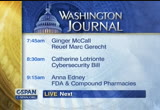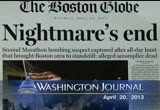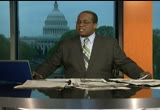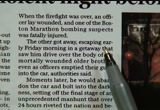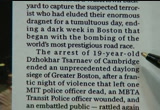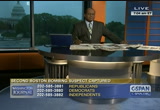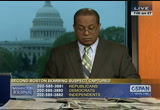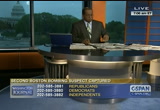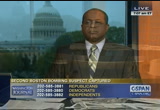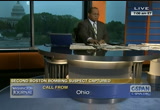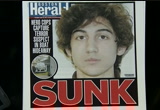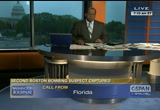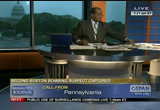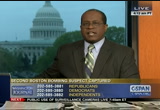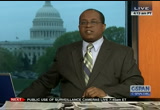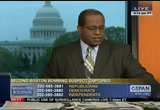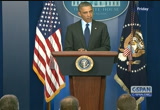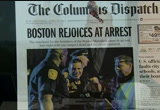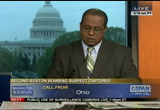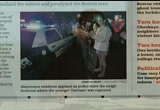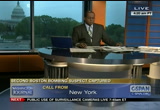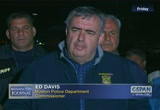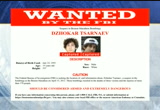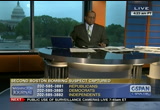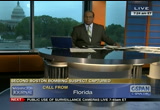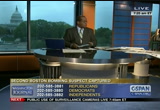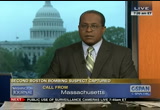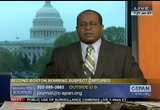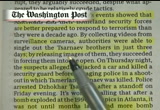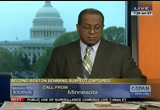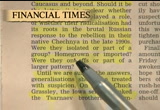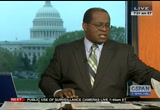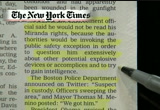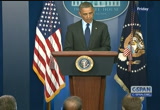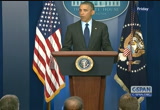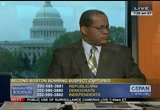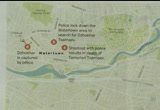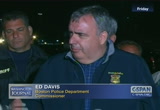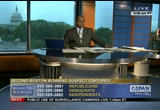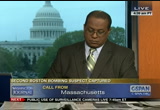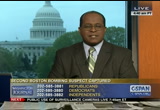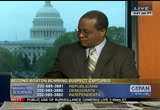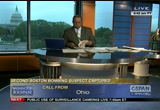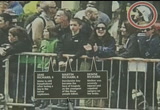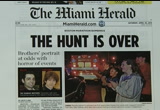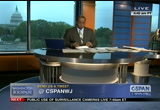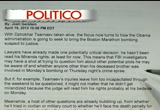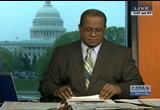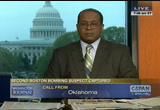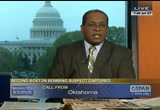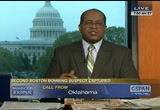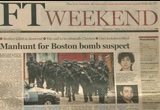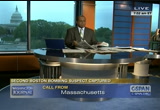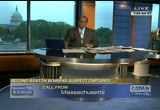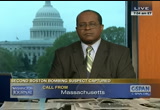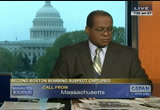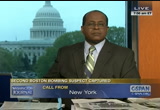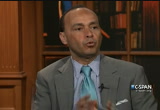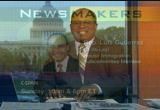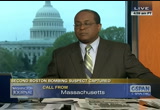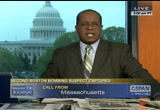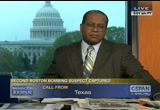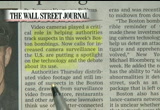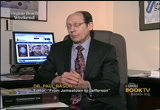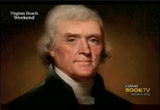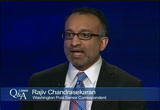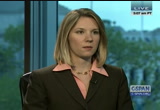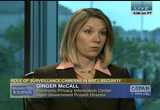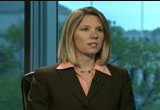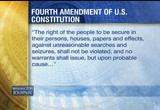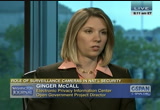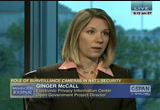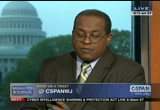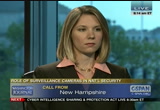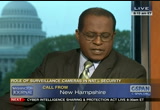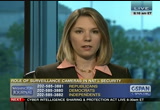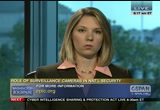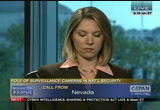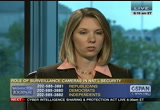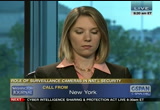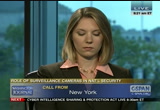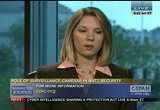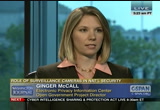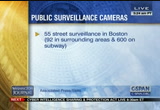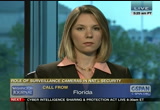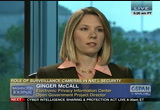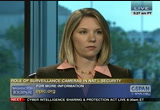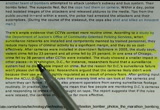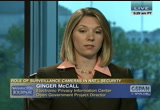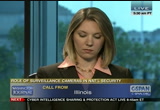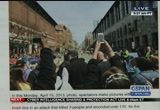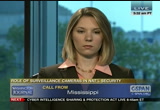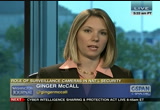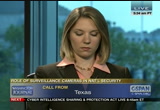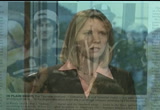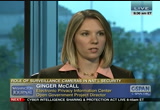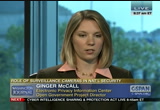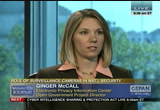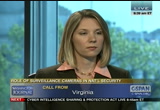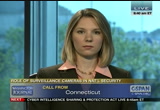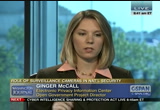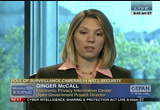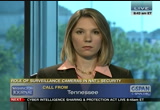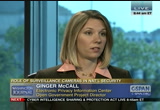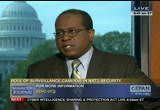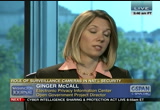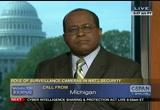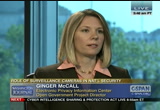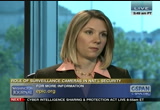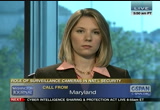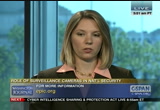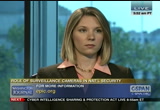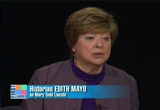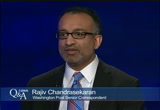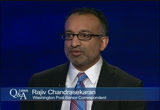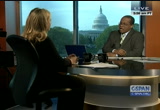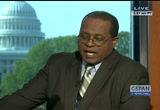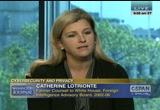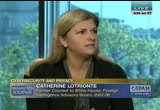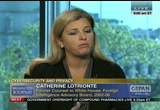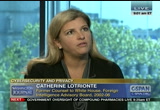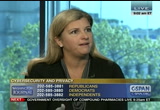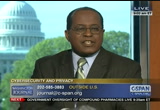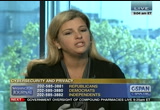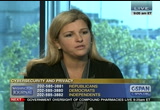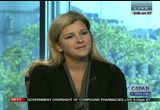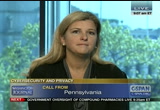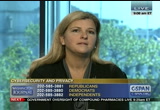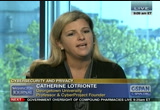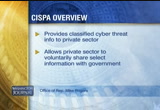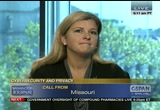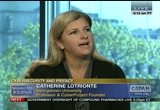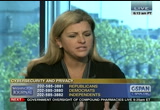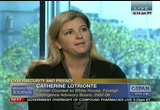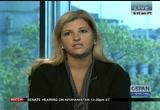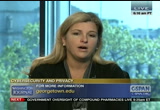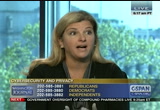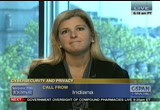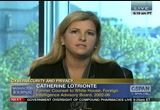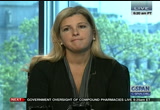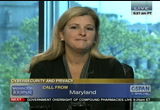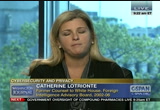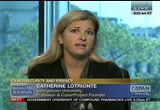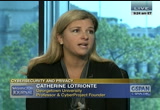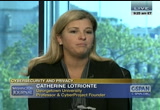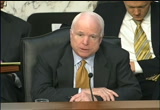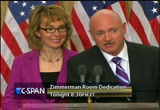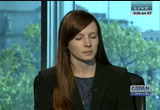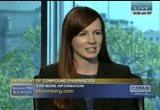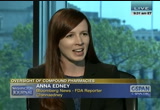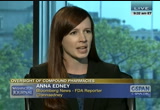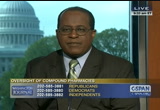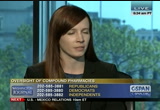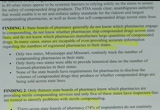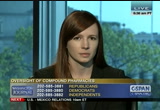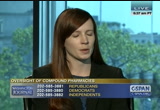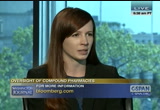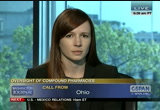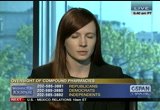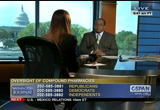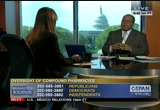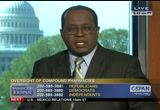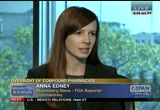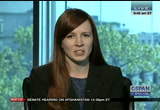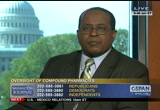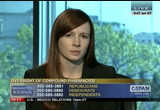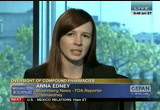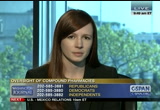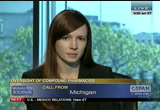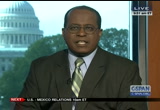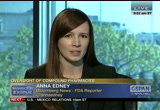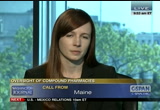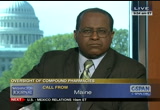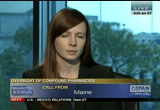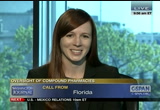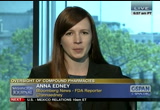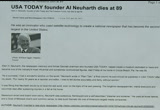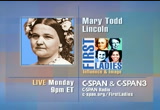tv Washington Journal CSPAN April 20, 2013 7:00am-10:01am EDT
7:00 am
and then a bloomberg news reporter discussing a new report released by house democrats have found gaps in the compound pharmacies across the country. "washington journal" is next. >> today the city of boston, the city of cambridge, and the city of what how can breathe a sigh of relief knowing that two perpetrators who have caused so much pain and anguish are no longer a threat to our personal safety. he is the special agent in charge of the fbi's boston field office. he is talking was in the headlines of all of the major newspapers since morning, here it is in "the boston globe." the second boston must that be the second marathon bombing suspect is captured.
7:01 am
good morning and welcome to "washington journal." today is saturday, april 20. we are going to be talking about this suspect being captured. we want you to get involved in the conversation. here are the numbers. we especially want to hear from our viewers and listeners in the boston area. you can also reach out to us via social media. more from "the boston globe"
7:03 am
7:04 am
7:05 am
the sister or the uncle did not call in after seeing those photos on tv. do you think that would of helped the situation at all? maybe they could have done something before they done something as far as killing a police officer or wounding the other one. or even preventing the car chase. they could have bought these characters before anything had happened. theyl that one of them -- should have verified that they called in. host: in "the new york daily
7:06 am
news," they have been covering the story and talking to family members. one uncle was questioned outside of his maryland home is today. he claims it wasn't religious fanaticism that motivated his nephews. theresa in middletown, conn. you are on "washington journal." caller: the bombing was a terrible tragedy. we all know that. there are a couple of things that really bothered me. the fact that the younger brother had gone a short distance from where the gunfight was the day before and ended up in that boat in the backyard. after police said it was all clear, they had checked that botat earlier. when the owner of the boat came out to have a cigarette, he
7:07 am
found the younger brother laying there in blood, pretty much unconscious. obviously if he was semiconscious he would have sat up. the police said a negotiator. he told him to come out and they started shooting. i do not understand it. i do not understand where at that point -- we want to know more about what happened. that is important. host: in " the new york daily ," --
7:08 am
david in dayton, ohio on our line for republicans. your thoughts on the second .ombing suspect being captured caller: i think this presents us with an opportunity to undermine the hatreds that some of our enemies feel towards us. i believe this is a young man who is engaged in hero worship of his older brother. i think we need to look at this -- possibility
7:09 am
we need to show the islamic world that we are not the evil people that many of them believe us to be. i think that compassion in this case will go a great distance to keep this from happening in the future. host: there are folks who are going to say that this gentleman is an alleged murderer and if he is convicted of multiple murders he needs to spend more time in jail than just three years. caller: i understand that belief. at the same time i take a look at this and say this is somebody who is only two years older than
7:10 am
trade john martin. -- than trayvon martin. this is simply another child who has been caught up in some things he does not -- i do not believe he understands. he is controlled by an older brother. host: the headline in this morning's "cape cod times." just in florida lauderdale, florida. in fort lauderdale, florida. caller: i want to see if there is any information i had read about a third accomplice. i am wondering if there was anything else that could be brought to the public's attention up at third accomplice, if indeed he does
7:11 am
exist. host: this is an ongoing investigation and i am sure there's a lot more information that will be coming out about the investigation and the pursuit of this alleged second bomber. patriotledger.com, "caught" is the headline. pittsburgh, pennsylvania on our line for independence -- caller: i was concerned we are still not prepared after all of the incidents we had not only with the shootings but explosions. i feel they were unprepared. with all of the police we still have this tragedy. aggression learn from the israelis and take precautions in more public theaters and
7:12 am
auditoriums. host: what kind of precautions are you talking about? there should of been more at the finish line. they should have been ready to prevent strange begs or boxes from being dropped in the open air. host: there are going to be those who say we are giving up a certain amount of freedom in order to try and be safe. is that something you're willing to do? caller: i do not think we will. we just have to be more alert. is re int up tonawanda, new york. good morning. caller: i just want to say at think you are one of the better
7:13 am
hosts. in any event, we have been in -- we have an individual from kate caught talking about this, he is not a kid. he went out and murdered people. he shot a guy dead, the m.i.t.- guy. he is not a child. we are always trying to find excuses for criminals. many people lost their limbs, many people wounded for the rest of their lives. one final observation, that woman from connecticut must have called c-span two times a week. thank you. tanawanda is ray in , ny. dennis is on our democratic salon. thank you for watching
7:14 am
"washington journal." caller: thank you. woman in pennsylvania who says we should have the same tactics as israel, that may be true but we live in america. and thank godica this young man was caught and may he be brought to justice. host: earlier one of the callers talked about one of the suspects being seen on a train traveling from massachusetts to new york. there are many unanswered questions still going on in this investigation. president obama addressed the topic of unanswered questions last night when he talked to the country after the capture of
7:15 am
the second suspected bombing suspect. this is what the president had to say. [video clip] >> obviously tonight there are still many unanswered questions. among them, why did young man who grew up and study here as part of our communities and country resort to such violence? how did they plan and carry out these attacks and did they receive any help? the families of those killed so senselessly deserve answers. the wounded, some of who have to learn how the sand, and walk, and again, deserve answers. we will continue to deploy all the necessary resources to support the investigation, to collect intelligence, and to protect our citizens. we will determine what happened, we will investigate any associations these terrorists may have had, and we
7:16 am
will continue to do whatever we had to do to keep our people safe. host: that was the president last night making the announcement that in fact the second suspected bomber -- second suspected boston marathon bomber had been captured. on the front page this morning of "the wall street journal," -- the brothers are featured in the article with the headline " life in america unraveled four brothers."
7:17 am
that is in this morning's "wall street journal." teams as calling from kentucky -- james is calling from kentucky. glad this is all over. i am worried how far this is going to take away our civil rights. weple are going to say, "now need to have guns." we could have caught him so much easier -- it was black powder they used in the bombs.
7:18 am
we should say we should restrict all voting power -- all bloating r.wder hos host: why you think that is necessary? putting upple are this may be a bigger agenda to take away our rights. it is really has me worried. in willxt up is kurt montt, ohio on our line for republicans. you are on "washington journal caller: i am in agreement with what was previously said. all one has to do is take a google operations:
7:19 am
gladio. within three minutes of exposing all of the navy seals at the finish line, news programs began changing their stories. he decided to present a possible suspect and all of the stories had to have changed. anotherration chose false flag. everyone should google operations: northwood and operations: gladio. this has all the earmarks. is all i have to say. host: that as curt in will
7:20 am
montt, ohio. we have to remain from new york on our line in democrats. i think the two guys got caught up in this bombing incident -- you have the older brother who is 26. he went to russia for six months. i'm sure he was training how to actually make these bombs. he can probably even looking up on the internet. somehow he radicalized his brother. i heard comments from fox news yesterday. it was interviewing people who knew the young brother. they are saying he went to high school, he was on the wrestling team, he was a nice kid. he is a nice kid? he put a bomb in a crowd and most people up. obviously nobody really knew about these people. the on call disowned them completely. i do not think anybody knew about these kids. i believe there complete
7:21 am
intention was to come over here and commit terrorism. as far as the cops just today and walking down the city, i grew with the 100%. they want to make sure they do not leave the area. host: jermaine in new york. edton police commissioner davis talked last night after the capture about how the suspect was captured. whatis a little bit about he had to say -- [video clip] officerston police along with state troopers and fbi agents responded to franklin street. a man had gone out of his house after being inside his house all day, abiding by our request. he walked up side and saw blood on a boat in his backyard. he then opened the tarp on the side of the book and saw a man covered with blood. he retreated and called us.
7:22 am
we set up a perimeter around that boat. over the course of the next hour or so we exchanged gunfire with the suspect, who was inside the boat, and ultimately the hostage rescue team made an entry into the boat and removed the suspect, who was still alive. how: that was ed davis on the suspect was captured. we also want to show you the poster put up by the fbi after dzokhar tsarnaev had been captured. one of the photographs taken by surveillance cameras or a cell phone camera in the area of the finish line of the boston marathon. we are continuing our discussion regarding the second suspect being captured. jeff from texas is on our line
7:23 am
for independents. you are on "washington journal." i would suggest 80 -- and just say we are humans. -- werents of these kids need to do something about them. they had to know their kids were ready to go out in the street. we have to do something about it. that is jeff in texas. next up is lombardo in hollywood, florida. out like to send my condolences out to all the lost their lives and these terrorist
7:24 am
attacks. i have to touch a topic. thesewas a segment about aircraft that we send out these foreign countries. in these foreign countries. a lot of civilians become wounded. that has a lot to do with the terrorist attacks that happen here in the u.s.. i think maybe if we start looking deeper into these topics, about sending these aircraft over, a loss of just like in boston. i am an american citizen and i do not know how we can fix this problem but we must do something about it. host: that is lombardo in
7:25 am
hollywood, florida. we have this from our facebook page, facebook.com/c-span. brenna from flint, michigan on our line for democrats -- go ahead. caller: i was listening to what you were saying about he was a young boy. he also knows right from wrong. he needs to be punished. even though he is a kid he
7:26 am
still knew right from wrong. thank you for your call. next up is jimmy norwood, massachusetts on our line for independents. are you there? caller: how're you doing? host: just fine. where is norwood in relationship to watertown? about 20 miles away from watertown. went up 2 years ago, they should have still been investigating that. the guy said they dropped the ball. they had them under the m icroscope. host: what has it been like
7:27 am
they're in norwood? caller: it has been kind of crazy. morningp early in the and watch the tv nonstop. it has been pretty crazy. and i feelt is over bad for the families of the people who were killed and all the people who were injured. our prayers go out to them. your unclelose does live to where they found dzokhar tsarnaev? caller: he was on the other side of watertown. host: was he on lockdown for 24 hours? caller: the whole area. it was all around this town. all of that was locked down
7:28 am
7:29 am
bill in virginia, minnesota. you are on the washington journal. think thisersonally is something we will see much more of in the future. actingst groups will be in the u.s. five to 10 years like they do in israel. host: what you think it is. take to stop or cut these attacks down? caller: pretty much impossible
7:30 am
7:31 am
7:32 am
i am very upset by the guy who called in and said that this guy should only get three to five years. as a defense attorney, it is hard for me to say this, he should be given life without parole and die in prison. host: talk to me about this item in this morning's "the new york a federalere they say official -- caller: i do not agree with that. everyone should be given their miranda rights. host: if he is not given his
7:33 am
miranda rights then they cannot use anything he talks to them about in a trial should this case goes to trial. caller: that is correct. said everybody should be given their rights. even the people in gitmo. that is how america works. talkedhe president about the court procedure that will be following this arrest of dzokhar tsarnaev. [video clip] >> that american spirit means staying true to the unity that makes us strong.
7:34 am
blogs,ng tweets and there is a temptation to latch on to any bit of information and sometimes jump to conclusions. when a tragedy like this happens, when public safety is at risk and the stakes are so high, it is important we do this right. that is why we have investigations. that is why we relentlessly gather the facts. that is why we have courts. that is why we take care not to rush to judgment. not about the motivation of these individuals. certainly not about entire groups of people. after all the one thing that makes america the greatest nation on earth, but also one thing that makes boston such a great city, is that we welcome people from all around the world. people of every faith, ethnicity, from every corner of
7:35 am
the globe. as to continue to learn more about why and how this tragedy happen, let us make sure we sustain the spirit. host: that was the president talking last night after the arrest after dzokhar tsarnaev in boston. he is the second suspected bomber. the headline in this morning's "seattle times," -- as we look at pictures of the boston police officer in watertown with people behind him. we will take this next call from eddie in massachusetts. marlborough is from watertown. caller: it is 25 miles west. i grew up in britain. it is about a mile from where
7:36 am
was set up area yesterday. lives insister who watertown and a sister that lives in belmont, probably a little closer to where all of this was happening. . my sister in watertown did call last night. the second caller was talking about why they did not get this .uy in the initial sweep they did ask one of the first questions -- why didn't they find this guy after the first sweep? he was literally one block outside of the original suite
7:37 am
zone -- sweep zone. they did search the boat earlier in the day. outside of thek perimeter. -- i wantnt to hold you to hold off for a minute. i want to show everyone what howavis had to say about the case was cracked. [video clip] >> the suspects came to our attention after a vicious assassination of a police officer at mit. a subsequent robbery that occurred -- we have videotape from a gas station. the robbery was a carjacking. officers engaged that car. we have been able to put the
7:38 am
case together. ed davis, a boston police commissioner. we are talking with any of barbara, massachusetts. ,- with any of marlborough massachusetts. caller: i understand they had to that lockdown, although it was an inconvenience. it was important. a bit of irony is that because --that did person who because of that the person who eventually found this guy was inside all day. they found a bit of blood so he was hiding in one place. sometime during the day and earlier in the night he moved and had been in a shed out behind this guy's yard. that is the first thing that i
7:39 am
noticed after coming out after the lockdown was lifted. door to thehis shed was ajar. that is when he noticed the blood on the boat. kind of an ironic way. --the lockdown was in effect was not in effect they might have called him earlier. i did not think that is the case. kind of crazy behalf it happening -- to have it happening in your package. hopefully that is all there is, just the two of them. theorist conspiracy already calling to the show. there are one to be those people out there. -- there are going to be those people out there. it is very sad.
7:40 am
they took away a tradition in boston. i have not gone since i moved out here. it could be used to be a yearly event. -- it used to be a yearly event. history butr in hopefully this is the end. host: what you think about the response from around the country? there has been the playing of "sweet caroline" at yankee stadium, something they don't often do givent the rivalry between the red sox and yankees. everyone watching this drama, what have been your thoughts as you watch us watching you?
7:41 am
am a patriotic kind of guy. i like my national anthems of stuff. they did the sports page, saying we are all one. it was appreciated. that is how it feels to know that you can put aside your differences sometimes. chicago is a great sports town like boston as. whenves you a little faith dc towns like that pulling together. it is greatly appreciated. i have been talking to all of my friends.
7:42 am
song,like you said with a you could put away petty differences and it brings up the good people. i really appreciate it. host: any calling on our line for independents. thank you for the call. next up is denise in ohio on our line for republicans. you are on the washington journal. caller: i am angry with david from dayton, ohio who says that give him two or three years. compassion when they set the bomb down beside family and killed and eight year-old boy? thatextremely angry someone can say show compassion. we have given them scholarships,
7:43 am
we have showed them compassion. how can we show the compassion when they suddenly kill people and heard so many people? how were we supposed to have compassion? host: here is a picture of what she is referring to in this ," whichs "new york post shows the second bomber, dzokhar tsarnaev, walking through the crowd. --the row here, martin richard became the face of the family. his mother, denise richard, was severely injured.
7:44 am
annie, you are on "washington jol >" calling inm reference to treyvon martin. this young man who he referred to as the innocent person is a murderer. perhaps he should have compared this murderer to the young boy who killed all of those kids at sandy hook, or columbine, certainly not treyvon martin. to give him 3 years is utterly crazy. this guy needs to get whatever the judge says. if it is death, that is what he needs. host: two more tweets coming in
7:45 am
7:47 am
7:48 am
people earlier saying he is just a kid, i am 19-years old and i personally know not to go out to shoot anybody, not to go out and lay a bomb that is going to kill a young kid. i personally know that is something you do not do. me about things that impress a 19 year-old. some people were saying that this 19-year-old might have been influenced by his older brother. what kind of things impress you as a 19-year-old? caller: i have an older brother. i look up to him and he impresses me. i want to be like him. if my older brother was to go out and kill people, but i want to go out and kill people? no, that is not something i would do. i would note that it is wrong. host: we are talking with joe
7:49 am
from will burton, oklahoma. we are clinton go to a different part of oklahoma. caller: i would like to know about all of this going on -- police had a taxicab pulled and the strip searched a suspect. do you know anything about that? caller: their reports of people detained in the search for this suspect. what is your point? never -- those are questions that are still being looked into. my understanding is those folks were not involved. my opinion on this
7:50 am
coming over here and -- we did notans attack them until they hit the towers in new york. i was on the oklahoma city when the oklahoma city bombing happened. host: talk was about the comparison between the bombing in oklahoma city, the bombing in boston, and the aftermath, the insuit of the suspects oklahoma city versus the pursuit of the suspects in boston. we're dc parallels or differences? -- where do you see parallels
7:51 am
are differences? mcveigh gotthy arrested when they spotted a gun. they found out later that he was a bomber in oklahoma city. i think that anybody who would blow up anything with kids or any kind of sports deal like that -- i do not think they should have rights. host: james in oklahoma. on the front page of "the financial times," their headline "manhunt for boston bomb suspect," also shows a picture of the swat team on the hunt for
7:52 am
the then-remaining suspect suspect dzokhar tsarnaev. the show a picture of his older brother, who was killed early in the morning in a car chase. back to the phones, a bill in cambridge, massachusetts. good morning. 3 things in terms of what other callers have said. can be anynk there compassion shown. those two brothers did know what they were doing. that was awful. thing -- homeland security or whatever authority in this had to have dropped the ball. -- they should have been
7:53 am
7:54 am
out of the public eye. get to yesterday's capture of dzokhar tsarnaev. tell us what it has been like for you in cambridge, the police presence and -- caller: from the marathon on it has been chilling. host: were you at a marathon? caller: no, i wasn't. all of yesterday was lockdown. that was chilling, too. nobody knew how long it was going to last. it was a very uneasy and reject a very uneasy feeling -- a very
7:55 am
uneasy feeling. "the neweadline in york post," did you feel like you were hunkered down in cambridge even though most of the activity was in watertown? there was no one in the street, it was really hunkered down. if you were following on the radio or tv it was mostly in watertown but you were also warned to hunker down. it was an uneasy feeling throughout. everyone totally regrets the incident. it was horrible.
7:56 am
host: thank you for your call. next we will go to george in staten island, new york. good morning. caller: good morning. i would like to say i think it is unbelievable a u.s. citizen rights onng given u.s. soil. no person should be held capital -- you're setting an unbelievable president. it is horrible. almost four hundred people have been killed by u.s. naval planes while they have been searching for people in pakistan. i do not understand how anyone believes that there have been 25 terrorist tense since 9/11. called it off at the end.
7:57 am
if this goes through you have special forces as soldiers throughout the place. you have a million people being taken out of their homes. nothing like this has ever happened and people are ok with tanks rolling down the streets. this is unbelievable and unnecessary for one suspect. how anyone can take this i do not understand. host: we want to remind our viewers and listeners about what is coming up this weekend on "newsmakers" congressmen luis gutierrez will be commenting on whether the events in boston should be tied to the nation's immigration debate. two members of congress said it should. here is what he had to say. [video clip] >> doing nothing, which is exactly what happens under the proposal, makes america less safe. we spend $18 billion per year
7:58 am
on immigration enforcement. just so the american public understands, that is more we spend -- that is more than we spend on the fbi and secret service. if you legalize 11 million people you take a whole bunch of folks read off of the table. i want to use the money to go and be smarter. host: a reminder this weekend's guest is representative luis gutierrez. you can see that interview in its entirety tomorrow morning at 10:00 a.m. and again 6:00 a.m. on c-span. you can also stream it on our website, c-span.org. our next call comes from dan from georgetown, massachusetts.
7:59 am
thank you for waiting. my condolences to all of the victims of the marathon. unfortunately i am going to have to side with the last caller with the fact that the fbi has been creating situations where they can lock people up. several callers are correct. there were private contractors. they have the same insignia of the skull on their hats. they were all over the finish
8:00 am
line area. you can get on the net and look. , the coach ofses the university of memphis stated there were announcements made before the explosions went off. severalhis time explosions went off during boston. what were all these explosions going off as they returned find the killers? -- as they were trying to find the killers? georgetown in relation to boston? caller: it is 30 miles up host: north you were not affected by these lockdown? constant effect
8:01 am
of the fear mongering that is happening. findl it is our duty to the truth as american citizens, wherever the truth takes us. host: next up is stop calling from texas. go ahead. i have a little bit of a comment and a question. my comment is all of the news media was covering this. we were all basically on lockdown because we were all intrigued by what was going on in boston. my thoughts and pears are with all of those people. none of the news media reported any of the information of our past. that wasn't reported. our process of
8:02 am
grieving for the people that have gone through these terrorist or deals? back and remember rememberple as " a -- those people as well as looking for. i think we are heading in that direction. we need to remember the past as well. none of that has been reported. host: scott in white borrow, texas. in this morning's "the wall street journal," -- coming up in this addition of "washington journal," we aren't to be talking about the role of
8:03 am
public and private surveillance cameras in public spaces. later in the program, the house passed legislation to allow businesses to share data with each other and the federal government for cyber security purposes. people talk about the specifics of that bill. tv" iskend long, "book featuring the life of virginia beach, virginia. here is a clip of the odder talking about his book on the thomas jefferson's riding of religious freedom in america. writings jefferson's on religious freedom in america. >> his genius is a factor in its of course.
8:04 am
it's intellectual founding is jefferson's enlightened ideas of freedom and protecting the state from the influence of the church, combined with theological commitments of evangelicals who were resisting church and state authority over them. there theological beliefs was that true religion cannot be compelled. they saw to protect religion from the influence of the state. they both favored separation and the idea of freedom of individual conscience. those dynamics can begin to create the political space for this. the statute as two basic things. does two basic things. existing religious groups equally, none has power over any of the others.
8:05 am
establishes the principle of freedom of individual conscience. religion cannot be compelled. it also says a third thing, it removes the idea of religious criteria for holding public office. most of the colony's require you to believe in the christian got to hold public office. the interesting dynamic was the choice that reaching the authorities had to make about the relationship between the church and state. there were advocates for continuing the pre-existing system. the opposite view was the view held by jefferson and the dissenting protestant groups who says there should be absolutely no connection at all between the church and the state. they should be completely separate. moste f-35 is the expensive weapons system in the history of the united states.
8:06 am
warplane, aanced fighter jet that is to be used by the air force, the navy, and the marine corps. it is the replacement for the f-16 for thearines and the navy. it is suppose to be our new ad best all-purpose by check. it was a plan that was supposed to be in the skies. it is still in debt -- it is still in the allotment -- still in development. i borrowed into this program as a way to write about the overall challenges of the defense budget. this program is singular in terms of its cost, its delays, and the way it has been structured. as i write in the peace, its most effective defense attribute may not be all of its radars and centers and missiles and stealth
8:07 am
technology and ability to fight at supersonic speeds. it may be the way it has been able to avoid the budget cutters in washington. ha >> "washington journal," continues. host: we are talking about the roles of security cameras in asian oil security. welcome to the program. talk to us about your thoughts and feelings regarding the role of public and private cameras in national security and the impact of these cameras. seen what we have historically is that public cameras are not good at preventing crime. this has come up in the context of london and the united kingdom, which has some of the largest, most saturated cctv
8:08 am
areas. the studies have shown that these cameras are not good for prevention purposes. the next question is are they good for solving crimes? what we have seen in london, which is one of the most saturated areas, is that the cameras are not good at solving crimes. a police steady in london shows that for every 1000 camera there was only one crime that was solved. you have a question of effectiveness. what we see is that they are not. we hear. they did not help to solve it after the case. was thesaw in this case
8:09 am
government reached out to the owners of private stores, to the people who were in kraut that took pictures and video, and they asked for that video to be submitted to law-enforcement. that was a very effective member -- and effective method. morning's "wall street journal," -- you say no? guest: the identification was fairly quick and effective.
8:10 am
there were numerous sources online. enforcement tow quickly anidentify the suspects. -- butoston best investigators you did -- boston investigators used a video from various sources. in the fourth amendment it hinges on the idea you have kept reasonable expectation of privacy. do you have a reasonable expectation of privacy when you are walking on a public street? a tricky question. oftentimes it comes down to this
8:11 am
question. you do not have an expectation of privacy in a public street. but you also did not have the expectation that everything you say and do is going to be recorded, that that recording is going to be retained indefinitely, perhaps catalogued in a database in the federal government. he did not have the expectation that every one of your conference stations are going to be recorded in kept forever. this is a tricky and thorny question that comes up with the surveillance technology. what about the argument if you are not doing anything wrong what difference does it take if someone takes your picture in keeps it? guest: there was a case in supreme court dealing with gps tracking. a tracking device was placed on the vehicle of someone under surveillance by law enforcement. one of the supreme court
8:12 am
yources pointed out that movements and your location revealed very intimate details about your life. they may not be criminal but they are still very intimate. it's the details of the doctor york visiting, about the stores you visit, the items you purchased, perhaps the political events to attend. these are the details you think he might would not want to be in some federal database. they're still very private activities. i'm sure the conversations you wouldcan think of that we not want catalogued in a government data base. many of those things are probably said even in a public
8:13 am
restroom or on a public street. just because it is not a crime does not mean you have an interest in keeping it private -- you do not have an interest in keeping it private. she is the open government project director at the privacy information center. we are going to be taking your calls. you can also send us messages via a social media, twitter, and facebook. we also want to take an opportunity to mention that we have invited a representative of the foundation for the defense of democracy is to come in and talk about support of surveillance cameras and national security. unfortunately that person was
8:14 am
not able to make it this morning. our first call comes from weighed in new hampshire on our line for democrats. you are on "washington journal." a lot of see inflammatory type of conversations on the table. i was going to talk about the prior dialogue between the miranda rights and all of that. i would like to just oppose what i was going to say and bring full circle to this. there's already an exception to the rule with miranda rights with wiretapping. bringing it into a parallel with what you are discussing now with i do not think we should be forgetting these techniques government and law enforcement officials deploy against our society are
8:15 am
primarily for detecting and preventing criminal conduct. , "big hear somebody say brother and government just wants surveillance on this and gps tracking devices on that so we can determine which gay bar you go to," is there some type eliminate that can the hyperbole >> tonight make sure i understand the gift of what you are saying the use of these cameras circumstance vents your protection under the fifth amendment? caller: the whole purpose of it is for the deterrence and prevention of criminal conduct to begin with.
8:16 am
correct? so i'm just trying to understand why we're -- why everybody is having these conversations that seem more to feed into the grape vine fear that's out there of the government is doing this and that. i mean, it's kind of clear that we have a lot of enemies that want to do bad stuff to our country in a lot of different ways and it is starting to spill over into our youth wanting to do bad stuff in a lot of ways. >> ginger, go ahead. guest: so the stated purpose is always counter terrorism is the prevention of crime. but just because you have that as your stated purpose doesn't mean that we're going to assume necessarily that the technology that's being employed is effective. thaffer one thing we need to look at before we begin spending millions of dollars or spending our freedom to put in these sorts of surveillance devices. are they actually effective? and there hasn't been any evidence that these are
8:17 am
actually effective at preventing crimes and there hasn't been that much evidence that they're very effective after the fact identifying suspects. and i do think it's very important when you do have especially a government-run device that there is some oversithe built into the system. what we have seen in the united kingdom is that there have in fact been abuses of the technology. there were two people brought up on charges for spying on naked women. there have been others since then. in the u.s. we have seen abuses with the f.b.i. so you always have to keep these things in mind. though the system may originally be envisioned to prevent terrorism or though that may be the wrapping paper that's placed in. it doesn't necessarily mean that it's the only way that the system can be used. and if we're going to have these sorts of invasive systems we have to ask whether or not they're effective for their stated purpose and how can we build in oversight and privacy
8:18 am
protections. >> next up, drew in nevada on our line for independents. go ahead. caller: thanks for taking my call. i would like to start by saying that my thoughts and prayers are going out to the community in boston, the victims and their family. in terms of the discussion about security cameras, i would say we're at an interesting crossroads in history right now in terms of globalization and social media and the effect it's going to have on our civilization as a whole. we probably can't really expect to have privacy in a lot of society when you look at how much information is tracked about us in terms of that. cell tower data, social media, everything like that. and i think we're coming to a point where you can't reasonably expect to have privacy when you're out in public. but it brings out an
8:19 am
interesting point here. if this is not being done by the government, could it arrive at a situation where third-party corporations are in charge of security like this? and would it be more beneficial to have the government where we can have more oversight over these sort of programs compared to a corporation, for example? guest: i think oversight in the private realm is also necessary. this is a place you need to have some legislation but the constitution itself separates out the government from other actors in this realm of privacy. we have protections from the government within the constitution. we don't have protections from other private actors and there's a reason for that. it's because the government has the power to do thing that is a private actor wouldn't be able to do. they have the power to detain you, to prosecute you under criminal law, the power to arrest you and all of these things are very relevant when we're talking about a private
8:20 am
isn'tor and government actor. and as to this question of whether or not there is a reasonable expectation of privacy what we saw is in fact in the day or two after this horrible event happened in boston, there was a poll conducted by fox news and 45% of people said that they wouldn't be willing to give up more rights in the face of this even after the very recent of this imible bombing. so i do think that after 9/11 we learned about prevention but also overreaction. and some lessons about privacy and the importance of maintaining our values even in the face of these sorts of terrible crimes. >> next up, bruce in new york on our line for democrats. go ahead. protecting all for citizens from terrorism, crime, but i strongly believe that privacy is privacy. i don't believe that google should be able to take a
8:21 am
photograph from satellite or anybody else of your property and technology will get to the point where they can it should be expected to be covered under your amendments. privacy is great but when they start -- technology is great but when they start recording -- i think ations we're going down a slippery slope. technology is great but i like
8:22 am
to mind my own business and i would like everybody else to mind theirs and i don't like to think that something i said in private or public be recorded on a device. guest: there has been a laps in the law for a while in regards to privacy and new technology. what we hear from congress recently they're not ready to legislated on these issues and this goes to the question of private isn'tors -- actors recording or catalogging data. google is one of the companies that we frequently pay attention to at epic. so there's been a laps of legislation. not a lot of political will on the hill. the courts have been delayd in really taking on and wrestling with these new technology issues but in the jones case that i mentioned, the supreme court actually ruled that there was an expect -- that there was an expectation of privacy there in that location data. and i think that this is the sense that most people have. that it wouldn't be perhaps
8:23 am
while you're walking in a public street, perhaps your conversation may be overheard or someone may see you. but most people have the expectation that that conversation isn't going to be recorded, it's not going to be stored indefinitely. that their image isn't going to be recorded stored indefinitely, that their location isn't going to be tracked from place to place on a regular basis. that that's the instinct that we have and that's what played out in the supreme court and what will play out in the law from here on out. >> we've got a tweet from a viewer. guest: well both have the capability to track a location and i think that is key here. if you have this sort of blanket surveillance network something similar to what we see in the u.k., they can easily track you within that surveillance network when you
8:24 am
ave those. so there is this hook. there's also the hook about the conversation that is you have on those conversations being recorded which is a separate question. there's a lot of privacy angles from which you can look at the question. >> you bring up the united kingdom. we want to show our viewers some numbers provide bid the associated press provided surveillance cameras, 4 million in britain, 500,000 in london alone. 10,000 in chicago, 3600 on rail system. 3,000 in manhattan. boston, 92 in surrounding areas and 600 on the subway according to the associated press. back to the phones mike in
8:25 am
florida for republicans. caller: good morning. and thanks for taking my call. i could give you my own personal experience. the town that i live here in florida has street cameras virtually every street corner. we have cameras. so i don't see the difference between that and gps. because i can be tracked by city government everywhere i go. i'm not personally worried about it because i don't do anything wrong. but my real question is where do we go from here? because 20 years from now my children are grown. is there going to be gps everywhere? is this going to be the end of it or do we keep going with this technology? and why am i helping fund something that i really am not that interested in? i don't really want everyone to know where i go even though i
8:26 am
don't do anything wrong. i think i should have privacy here. guest: host: you say you're not concerned but do you feel safer? do you feel more protected with the camera there is? guest: caller: if i'm driving down the street and there's a camera right there then i turn left and there's another camera i feel like i'm being followed everywhere. >> ginger. guest: i think there's an important distinction there, the difference between feeling safer and actually being safer. before, and you touched on this issue, caller, about the money being spent on these cameras. before we spend this money, before we spend if he more money or any more freedoms or expectation of privacy on these devices, they should be shown to be effective. there should be some study that shows that they are effective at the purpose that we're stating we're using them for at preventing crime, at preventing terrorism. we see nothing that indicates
8:27 am
that they're effective. numerous studies have indicated that they're not effective at preventing crimes. and there's a discussion here about the u.k. and the number of surveillance cameras they have there. and again, their police department studies show that for every thousand cameras only one crime was solved. and that's solved not prevented. so i think that's a relevant distinction. one thing that i wanted to point out about the use of the cameras in the boston marathon bombing is that actually the way that laufment went -- law enforcement went about this was very effective. it was minimally invasive. it was very targeted. they said there was an int vent that happened. please send us all your photos and videos and information that is relevant to that effect. and that's what we're looking for here. something is minimally invasive targeted toward actually solving the crime at hand or eventing the particular type of
8:28 am
crime that we're concerned about. something that provides some sort of oversight. if we are going to use the cameras in law enforcement is going to be in charge of those cameras there has to be oversight. so i think the way that the investigation was conducted here was successful and also minimally invasive. >> you talked about some numbers saying that it's not effective. we've got this from an article from slate.com. and they write.
8:29 am
guest: those are a few studies. and for every one of those studies we've seen a rebuttal come out that identifies another reason that may in fact exist for the decline in crime. and for every one of those studies there's a study showing the opposite. there was a study about san francisco public housing project that is showed that the cameras installed there were very, very minimally effective, if effective at all. that they didn't help prevent
8:30 am
or solve homicides. we've seen other studies. so the question is very much unanswered whether these cameras are actually effective. and that's the question that we should have a real answer to before we start paying to install them everywhere. guest: host: ginger mccall the open project director at the electronicrivacy information center also known as epic and is here to talk to us about the role of surveillance cameras and national security. our next call comes from kenny in illinois on our line for independents. thanks for receiving my call. these people we were warned that these people were dangerous. f they would have been watched , we could have prevented this. i'm not saying put cameras everywhere but at an event like
8:31 am
this if we would have watched these people this could have been prevented and i don't think you can argue that fact, ginger. >> ginger mccall. guest: i think that fact can very much be argued. there were cameras in boston. there were government-owned cctv cameras. also every camera that every person had. there were also the restaurant cameras and the store cameras that were used to help to solve this crime. so there's a lot of surveillance here. and this was an event where any reasonable person would have expected that there would have been pretty heavy coverage video coverage, photographic coverage. this was something that happened close to the finish line where everyone would be taking pictures. so clearly the presence of cameras in this instance was not something that actually deterred and it wasn't something that actually prevented. >> next up is karl calling from mississippi on our line for
8:32 am
republicans. go ahead. caller: toipt ask the question -- i want to ask the question how do we know that these cameras are true? who does the -- i want you to educate me because how do i know what i'm seeing on that camera is true? >> what do you mean is true? you think somebody is doing some editing? caller: no. and i don't want to diminish -- i want to go out to the, all the firefighters and everybody that lent their hand in this to help everybody but i want to know -- and i'm not saying these guys aren't guilty but with these cameras and in the scheme of things with cameras everywhere, how do we know what we're seeing on the ground here is true? how do i know what i'm seeing is true? who polices this? >> ginger mccall. guest: well, the resolution of cameras in particular, the poor resolution or the poor light,
8:33 am
these are issues that come up a lot when they're used after the fact to identify suspects in a crime. i don't think that those were really issues here. i've looked at the footage myself and i've looked at the sort of privately user generated photos that were posted up on line and the "new york times" and it seems fairly clear here but in a lot of cases the surveillance cameras are foiled by a lack of light, by a lack of resolution, by even something as simple as someone wearing a ball cap or sunglasses and this is part of the problem with this technology. but it's not imperfect technology. which actually maybe why it was better here to have all of these publicly submitted pictures. you had pictures from multiple angles, from multiple users, multiple lighting situations that did make it easier to identify these suspects. also, one thing that i wanted to point out is that not only did you have the pictures here but there were witness ids.
8:34 am
muse needia outlets that jeff who was grievesly injured in this tragedy actually had identified, had the presence of mind to be able to identify one of the suspects to give a good strong description of a suspect to the f.b.i. not to look at a lineup of pictures but to give a strong description of the suspect and what had happened at the scene to law enforcement agents. and i think that sort of traditional policing, those sorts of methods were very effective here. >> next up is naturally calling from houston, texas. go ahead. caller: good morning. thanks for accepting my call. i have a question on the expectation of privacy. work in public transit and since 911 they installed cameras all over the buses and even in the workplace and the
8:35 am
room where we take breaks. and you have the camera on you for eight hours and so far those cameras have been used mainly just to discipline the drivers. and not to mention that you have bodily functions and for eight hours or more they're just looking at you? and i've seen cases where other employees within the system are watching these operators. >> ginger, this sounds like a public camera versus a private camera. guest: it's unclear whether this is a publicly owned transit system. it's hard for me to speak to this. oftentimes employers do use surveillance to monitor employees. that's not an unusual
8:36 am
situation. that's something that happens quite frequently here in the u.s. and at present our laws do allow for it provided that there's employee consent and oftentimes that's implide when you sign an agreement with a company. stpwhra we have a tweet. guest: do we want cameras everywhere? do we want to constantly be monitored? and this is a question that i think there's been a little bit of a change on after 9/11. and then perhaps a bit of a swing back. in the most recent poll it
8:37 am
seems people aren't willing to give up more of their rights in order to perhaps prevent or effectively solve these sorts of tragedies. i think it's also important to int out here that cctv cameras are questionably effective and they're not the used. thed to be it probably would have been more effective to use bomb sniffing dogs or something targeted toward the specific ill that we're trying to prevent and something less invasive also. those methods would have been more effective, they would have been less invasive and it's something that we should certainly look into when we ask this question of what are we going to do to prevent these tragedies in the future? we should ask what is the most effective and least invasive meth snd >> tell us what is the electronic privacy information
8:38 am
center and what do you do as the open government project director? guest: we are a not partisan nonprofit organization based here in d.c. i litigate under the freedom of information act and make open records requests to the government which an open records request is something that anyone can do. we are lucky because we're set up to litigate and to follow up on that and to force the government to disclose documents to us. >> and your clients are who? guest: my client is epic. i make the request on my own half, epic does, our other employees, and then we sue. >> you're making these requests like? guest: department of homeland security is the usual suspect, the nsa, c.i.a., department of justice, the f.b.i., the open records act of the freedom of information act allows anyone to make a document request to the government and the government has to fulfill that request except for very
8:39 am
narrowly delineated exemptions . host: what is it that you're looking for? guest: we frequently look for information about new surveillance technologies. i will often ask for contracts, statements of work thing that is give me a better idea of what these are capable of, what they're designed to do. we make the request and then take the information out to the press so the people can make the information. because you can't have a real democracy if you don't have transparency . host: we're talking with ginger mccall, open government project director at the electronic privacy information center. also known as epic. our next call comes from virginia on our line for independents. go ahead. you're on the "washington journal." caller: i just want to call in to say that i think that the new technology and surveillance idea. is a -- is a great if we didn't have these surveillance cameras we would have never know who bombed
8:40 am
boston or who killed that 8-year-old little boy. i think it's -- i think it's excellent and the thing that ginger mccall is talking about i think that her nonprofit organization has a great outlook on the future for the united states of america. >> all right. let's move on to pat in connecticut on our line for republicans. o ahead. caller: my comment is that i drive tanker trucks for a living and we have surveillance cameras at the terminals and i've driven my truck into neighborhoods where there was a high crime rate and the surveillance cameras have cut down the crime rate significantly. also, i think we need to have more security in this country because i worry about when i'm on the interstates in somebody is going to turn my truck into
8:41 am
a weapon. i have background checks in homeland security credentials to drive these tanker trucks nto military installations and there are a lot of terminals with a lot of security cameras and i think we need more cameras. we live in an age where we just don't know who is pulling up alongside you in traffic. i think we're way too liberal in this country and we need to tighten things up because we live in a time where you never know what someone is going to do. >> we're going to leave it there. ginger. guest: again there's a difference between feeling safer and actually being safer. it's sort of national security theater that we often engage in here that term was coined by security expert bruce snider and he often discusses, and something we feel very deeply, that there's a difference
8:42 am
between feeling safer and actually being safer. there there's a difference between effective methods and methods people feel are effective. and while people may feel that it is effective, there are a lot of studies that have shown to the contrary that it's not effective at either preventing or solving crimes and the question is up for debate. and there's also no such thing as perfect security. and this is unfortunate and terrible in the face of these sorts of tragedies but there's no way we're ever going to be 100% safen ves particular in regards to terrorism. what we need to focus on is narrowly targeted methods that are actually effective at preventing or solving crimes, particularly terrorist crimes. methods that are as noninvasive as possible while still being effective. >> in a recent article in new york daily news, mayor said we're going to have more
8:43 am
visibility and less privacy. mayor bloomberg admits soon new york pt surveillance cameras will be on nearly every corner and in the air. they show a picture there of two of the surveillance cameras at central park south. next up, frank from tennessee on our line for democrats. go ahead. caller: i don't really believe in all this surveillance and national security because the people knew they were on cameras still didn't stop the person from doing what they wanted to do. it only shows you what happened after the fact. it had no ability to stopping the bombs. but i want to know when we get to talking about the cameras, i'm a black guy and i have a very [inaudible]
8:44 am
i know they're going to try to bring that to our neighborhood. certain people -- i don't believe in that. that privacy i don't believe in that surveillance stuff. i believe in my privacy. i don't want big brother looking at me. >> that's frank in tennessee. guest: there certainly has been surveillance targeted to particular neighborhoods. i want to speak also to the article that you just brought up with the mayor, i think you said it was mayor bloomberg. i think if we're going to see these cameras installed we need to see rules and regulation that is govern how those cameras can be used by the government. in particular, what sort of data retention we're looking at. is this going to be indefinitely retained or are we going to see it wiped every week? if it's not actually necessary to law enforcement investigation? is it going to be retained for 24 hours, 48 hours? a month? a year?
8:45 am
two years? these are the sorts of question that is we need to be asking. we need to ensure that if this data is collected for a particular purpose. and if it's sold to the public as we are going to be using these cameras for this purpose we need to ensure that there's not mission creep, that the cameras are only used for that purpose going forward in the future. there needs to be oversight on the law enforcement agents that actually get access to the cameras, who can access them, when, what sort of internal mechanisms are created for oversight? because as i said, we've seen in the u.k. and elsewhere that there have been abuses. we can certainly envision that in the future and we need to create proper oversight to ensure that it doesn't happen. >> is there anybody on the hill that's working for legislation to guarantee the kind of oversight that you're look for? it seems that there's going to be at least in new york more surveillance cameras. and after the bombing in
8:46 am
boston, there's a belief that these kind of cameras help whether or not they do is part of the debate that we're having, part of the discussion that we're having. but there is a group out there that believes in having more of these cameras makes them safer. host: guest: there hasn't been a debate yet on the hill on a national level. i think this is probably going to be legislation that we will see on a more local level. it's probably going to be more localized in part because the use of the cameras is going to be a more local decision. it's going to be decisions that cities make as a city instead of the national government. so that's the place where we're going to have to see city governments step up, state governments step up, and create some privacy protections and some oversight mechanisms within this technology. >> we're talking with ginger mccall and want to remind our viewers and listeners that we
8:47 am
had invited a person who represent it had group who supports the use of cameras for national security from the foundation for the defense of democracy. unfortunately that person was not able to make it this morning. gregory in michigan on our line for independents. go ahead. caller: good morning and thank you very much for taking my call. ms. mccall is very important to me. , it's some information valid, it's so real that they don't make a computer big enough to make it a lie. ok? >> what kind of information is this? caller: it's about the new way of spending money in america and the world. i know about it. oh, yeah. the u.s. house of representatives in 1998 held a hearing, the topic was
8:48 am
biometrics. and the future of money. they were talking about this gcomb planted chip in people. it went where they went. there are a bunch of tracking devices. i understand it needs to be done. if we catch a terrorist we ought to put two or three ow of them in him. >> all right. we're going to leave it there. he did bring up biometric face recognition. talk to us about that technology and how that works into the discussion regarding surveillance cameras. guest: we have seen an effort by federal agencies to develop facial recognition technology. particularly the f.b.i. has what's called the next generation id data base. there are a lot of issues with facial recognition technology. again it's not a perfect technology. if it was the f.b.i. would have been able to use its existing next generation id beta base to identify the suspects in this
8:49 am
case. t can be foiled as the cctvs can by a baseball cap and sun glasses, by bad lighting, a bad angle. when you're dealing with the cameras in particular you're not dealing with a head-on square picture of a person which is what they're often based on so they're imperfect. we're also looking at that as a place where we need to build in oversight. it shouldn't be just pulling pictures from say the driving -- drivers licenses of people in various states. the pictures should be pulled only from criminal data bases. only from mug shoggets. so we need to ensure again that we're building in the privacy protections. but we also need to keep in mind that these are not perfect technologies. >> next up gwen on our line for republicans. go ahead. caller: good morning ms.
8:50 am
mccall. excellent show. i am against them only in the fact that they are very intrusive into people's first and fourth amendment rights. they basically came out of the patriot act under george bush and i think it's getting a little crazy wrsh they're using it to i guess target as you said innocent americans citizens who -- i mean, they're doing their day-to-day operations and i think they could better utilize taxpayer dollars in a better way. and what i don't like is that as you said before they use it for routine crime purposes. i mean. some of these people aren't doing anything that deals with terrorism. and they have labeled certain political groups, civil rights groups and other i guess people that they keep dose yeas on
8:51 am
that they don't like to use these surveillance activities and actually they're not only using the cameras to listen to people believe it or not they're using in my mind i believe they have technology they can use to listen to you inside your home as well. >> did patriot act sort of open the doors for more uses of surveillance cameras? guest: not surveillance cameras in particular. obviously there are a lot of problems with the patriot act and surveillance but i don't think it's particular to this. there is this issue that your caller brought up of mission creep or mission drift. oftentimes we see new surveillance technologies build as counter terrorism technologies but they quickly become technologies that are used against more routine crimes in particular drug crimes. and that's a problem. if it's billed as counter terrorism the use needs to be limited to counter terrorism.
8:52 am
if we're going to be using technologies for a broader purpose, we need to have a public debate that actually focuses on that broader purpose. there's also this question that she brought up first amendment and fourth amendment rights to be constantly monitored does have a profound chilling effect on a person's first amendment and free expression. anonymity is important for free expression. to be able to attend a protest anonymously and not have that data be catalogued by the f.b.i. is important. it's an important aspect of our free expression here in the united states. you shouldn't be survailed. you shouldn't be monitored. your information shouldn't be entered into a data base unless you're actually commiting a crime. >> we've been talking with ginger mccall. -- s their open
8:53 am
>> the house this week passed legislation to allow businesses to share data with each other and federal government for cyber security purposes. we'll talk about the specifics of that bill and then later in the program we'll talk about a congressional investigation into gaps in oversight of compound farm sizz. you're watching the "washington journal." today is saturday, april 20, we'll be right back. [captioning performed by national captioning institute] [captions copyright national able satellite corp. 2013]
8:56 am
>> more with the "washington ost's" senior correspondent. on q&a. >> "washington journal" continues. host: katherine is here to talk to us about cyber security and privacy. she is a former council to white house intelligence advisory board and currently a georgetown university professor and cyber project founder. welcome to the program. guest: good morning. thank you. host: first off, talk to us about the boston -- the suspected boston bomber, the second one is reported to have used social media, facebook, and twit tore talk to friends of his after the bombing. what protections, if the government was trying to track him down through his use of social media, what protections
8:57 am
do the current laws offer to his friends from being prosecuted for being associated with this guy just for using social media? guest: for the use of social media itself, there's no crime of doing that. however, it's the information that the government is given show that had somebody is cooperating with him or conspiring, assisting him and avoiding being brought to justice they could be brought to court for obstruction of justice or conspirators to the crime. so the social media use itself not being a crime, nobody would be held responsible for the use of it just because they were on -- a friend of his on facebook itself. host: this week the house passed a cyber security bill that would establish a framework to provide private companies and the federal government to share information relating to computer related threats. some oppose this cyber
8:58 am
intelligence sharing and protection act also known as siba. over concerns of privacy and president obama has threatened to veto this bill. so talk to us about the details of it and what it is that is raising concern on both sides of the aisle, i guess. guest: the side that the debate is really as you said about the level of privacy protections granted within the bill. which is the president's execive order that he issued recently. and the bill itself actually is meant to improve encourage the private sector and the federal government to share some critical information on cyber threat. so cyber threat information as the bill describes it where companies would be free to provide whichever federal agency they felt most comfortable with, and this is part of the privacy advocates' concerns, it doesn't limit the
8:59 am
sharing of the information for instance only within civilian agency like d.h.s. so it's a private company has information on using their cyber security systems they determine and find what they have -- what the bill calls cyber threat information. they are allowed under the bill to provide it to any government agency they feel most comfortable with. so for instance if they have a longstanding relationship with the military, they are free to provide that information to the military agencies. or with the national security agency. now, the privacy advocates are concerned that this -- and the president's own executive on the other hand limited sharing only with d.h.s. so there's this debate as to whether that information private companies provide should be only given to a civilian government agency versus a military or an intelligence agency. host: so let's say for example
9:00 am
d.h.s., the department of homeland security is looking into my background and a potential cyber threat that i pose. and in doing so they find some information electronically that i haven't been up front with my taxes. this would prevent d.h.s. from say sharing that information with guest: the private companies in sharing information, the biggest concern is -- individuals are concerned that their private information within the cyber networks orson dems would be held -- or systems would be held by private companies but then provided to the government , that this private information would not be stripped by the companies first. in the president's executive order, the onus would be on the
9:01 am
privacy advocates. they want the private companies to strip any private information that might be caught up within the context of cyber threat information. thet one has to understand definition of cyber threat. it is unlikely but not impossible that your private tax information, your e-mail content would be part of that information that is a cyber threat information that would be given to the government. is there a possibility that it would be lumped in with that? yes. so whose responsibility is it to minimize and get rid of your private information? the bill does not allow the government to use the information that it receives from the private company for anything other than a few select thees which is outlined in bill. .or example, cyber crime
9:02 am
for the protection of minor children, so if there is molestation or pornography involved, that information can be used to stop those crimes, or if someone's life is at risk. what you mention for tax evasion or drug use, that is not allowed within this bill for the government to use that information for those purposes. beyond that concern, people are concerned about the government just having possession of the private information. we want the government not to have private information that might be lumped in with the cyber threat information, who should be getting rid of it? to companies, when they want share with the government, they do not want that added burden of having to scrub all that threat information for any pii that might be in there. at the moment it does not put
9:03 am
the onus on the company, but would allow the information go to the government, and have the government get rid of any possible private information that arrives. host: we're talking with catherine lotrionte about cybersecurity and privacy. she is a professor at georgetown university, cyberproject founder. she's also a former counsel to the white house foreign intelligence advisory board. if you want to get involved in our conversation, please give us a call. .he numbers are in your screen you can also send us messages via social media, twitter@c-span wj. we also still take an e-mail or two.
9:04 am
why does the government need this information from private companies like comes to cybersecurity? guest: there are certain things that the government have the capability of collecting themselves. they have a sense of the breadth and the depth of the threat that is being faced now. the number of private entities, banks, news media outlets, "new york times" under cyber attacks what the government has determined is that a key to the success in stopping these attacks is that we need to have as much information about the threat is possible. the private sector and the government from whole different set of information -- sometimes it is the same.
9:05 am
are seeinges, they the threats as they materialize on their own network. the government does not see that. the government has indicated that in order for us to prevent these pretty aggressive cyber attacks from continuing, one key fundamental way to get the problem is to increase the information sharing. the private sector has information on their own network that the government does not have that if the government did have, the government would do a better job of protecting the system and vice versa. the executive order that the president came down with emphasized critical infrastructure only, so it was more early focused -- narrowly focused. the president was focused more on the government giving its information to the private sector. that combination of information put together should give us a
9:06 am
better picture of the threat, the landscape of who the adversaries are, and what they're after and how they're going about technically getting that information. the rogers you referred to is representative mike rogers of the house intelligence committee, who is deceased on twitter after saying, opposition to a cybersecurity bill came from 14-year-olds in the basement. first up, a call on our line for independents. caller: hello. on the cybersecurity, i think if you're going to become a u.s. citizen, like the people from 9/11 and the people but in wantn bombings -- if you
9:07 am
to be a u.s. citizen, you should have one of these cameras strapped to your four head so people can eat an eye on you -- keep an eye on you 24/7. how many people see the news? it only showed it once after 9/11. a couple of the people that was in the airplanes got their citizenship in the mail to where they used to live. thoughts are a little scattered and have nothing to do with our topic right. were going to move onto bill on our line for democrats. caller: i think there needs to be a degree of surveillance, be it electronics, visual -- my
9:08 am
biggest concern is that there are no apparent quality systems behind all of the equipment to make sure that the equipment information is being used according to whatever rules or regulations were put in place. like a quality system that says that it checks to see that information is being used according to the rules. it appears that there is no protections behind the information it gathers to make sure it is not abused. it will be abused if you are not checking the quality of how people handle it. thank you. host: catherine lotrionte, explain who monitors how the information that is gathered by regard toment with
9:09 am
cybersecurity, who monitors how that information is used right now and how would that change if cispa becomes law? guest: right now each agency has their own oversight and liability mechanisms, and inspector general who is responsible for monitoring all of the programs. in this case, where the new legislation is not creating any new surveillance or collection program -- it prohibits the u.s. government from doing anything beyond what is already authorized to do -- it does build in the bill as well as the president's executive order, that oversight and accountability. if the color correctly said, we definitely need -- as the color correctly said, we definitely need a system that is checking
9:10 am
-- caller correctly said, we definitely need a system that is checking. the president's executive order calls upon the chief information officer to be responsible for managing, monitoring, making sure that all the agencies that may receive data from the private sector are actually in compliance with what they are supposed to be doing, using the data properly, sharing it anyway they are supposed to be sharing it. bill an executive order, is the accountability and oversight. host: were talking about cybersecurity and privacy in terms of the cyber intelligence sharing and protection act, also known as cispa. here are some of the details of , provided by representative mike rogers.
9:11 am
joining us to talk about that ,s jeff in columbia, missouri on our line for republicans. this is jeff wesley. it's about time they're doing something about this. this has gone too long. i myself have been under these cyber threats for 20 years, where they have gone through the respiratory, mind control, and everything else. host: who is doing that, jeff? ,uest: i have no evidence witnesses, or proof because it
9:12 am
is all done wirelessly. i think it's coming out of the white house. , if: catherine lotrionte someone like jeff feels like they are being investigated for cybersecurity violations, what sort of recourse do they have? who do they go to? here is one of the challenges if you are in that position. it is difficult for any individual to actually know whether their information has been provided to the government through the system. through the mandatory reporting and oversight within the executive branch and congress, there would be investigations of anything that would go beyond their authority or violations of the law. for instance, what if a private company gave under the authorization of the bill, gave
9:13 am
information that was part of what they deemed to be in good faith to be cyber threat information to a federal government agency. in that information also, there was private information that the government received. ,he government, under the bill is required to tell that company that they provided them in accurately with private information of a citizen. what most individuals will find not satisfying enough is that the individual user themselves is not told by the government rate it is up to the company whether they tell their customer that private information -- government. it is up to the company whether they tell their customer that private information. the recourse is limited. if you are under a criminal investigation for cyber crime and the government obtained this
9:14 am
information through the legislation, the bill allows the government to use information about cyber crime, or to protect children, so if there is child turn onto free or molestation -- pornography or molestation. ifer than those crimes, your private information was in error given to the government, the bill allows for this information to be free from the freedom of information act provisions, which means it will be difficult for an individual to know if private information was accidentally handed over by a company to the government. host: next up is maryland on our line for democrats. you are on the "washington journal." guest: i thought it was time
9:15 am
for a reminder from one of our forefathers. they reminded us if you give up liberty to seek security, you're not going to have liberty or security. it seems that in our eagerness that the bush patriot act this cyber collection of information which pretty much gives up our liberties to , seeking security, that we could be coming to the point where we don't have security or liberty if we keep it up. host: catherine lotrionte. guest: a very important message to recall. i truly believe as well as those who put the legislation and the president's executive order together that we we do not want to give up our liberties in order to seek greater security.
9:16 am
one myth or misperception of the bill is that it somehow allows the federal government to have border or new surveillance powers. -- neit does not. it does not allow the federal government to conduct any type of surveillance. this was important because it is not similar to the foreign intelligence surveillance act. in this case, we are talking about sharing cyber threat information. there is no new collection authority. clearly, i think you're getting at a concern that it does allow private companies to hand over threat information to the government. the object here is to keep that threat information such that it does not include your private
9:17 am
information. that is certainly not what the bill is about. this is not about counterterrorism, about a fourth amendment debate, about surveillance. it is about information that has already been collected by , about specific cyber threats. if we could only share that information as a way to protect -- hearings on the hill where a debate with the privacy advocates of voicing their and congress working hard to make sure that they work those concerns into the language of the bill. if you look at the language of the bill, you will see how they did that. eff is whtat? frontierectronic
9:18 am
foundation. caller: it's been nice hearing your speaker there. , icomment or question is don't really trust the government with my cyber or personal information. what happened to freedom of assembly? you're going to be watched by video cameras. ,ou can't send an e-mail facebook, anything, without having somebody in washington review it. why would we trust people in washington to do anything, whether they are congressman or , when they did all the stock trading on information they had, which morally they shouldn't have done? it's sort of like, fool me once. they fooled us twice.
9:19 am
get the information, i guarantee you it will not stay sacred or i. we want to build and oversight and accountability in any kind of legislation. any time when the government is getting information, from the private sector or individuals. this type of information is not the information -- these are not cameras, pictures of people, e-mail content. these are zeros and 1's. this is computer malicious malware, cyber threat thatmation, these cti's the bill is discussing. is not that the government would have authority to read my
9:20 am
e-mail, your e-mail. the companies are looking at their own networks and seeing theres coming in, where is destructive or disruptive nature attacks to these companies. nobody is free from the attacks. the idea is that we need to look at the malicious code to learn more and combine information the government has about the adversaries with the private sector. the intent behind the legislation was not to take pictures, certainly not to read the private e-mails of individuals. next up is leroy. caller: the first is a quote the lady gave about liberty and freedom. that was benjamin franklin. my gripe is that these cameras that are implanted on the
9:21 am
corners of the right turn only roads in jersey are run by private corporations. they are making a killing on the fines that are dished out to the people who slide through those right-hand turns a second too soon. host: thanks for the heads up on ben franklin, but we're talking about cyber security and not cameras. caller: ok, i'm sorry. host: burgoyne to move onto richard -- we're going to move onto richard. in the cyberk security field. there to be an inordinate concern over privacy when in fact the purpose of this legislation is to have a public- private partnership to protect national security information, to protect technology, to protect private corporations, and to have some guidelines for
9:22 am
that cooperation so that we don't lose our competitive edge in the world market. perhaps your guest could talk more about that aspect. we desperately need a coordinated effort and we're byting hit very hard hackers, especially from china, in state-sponsored attacks. the threadlevel of is exactly why the bill was proposed. it is exactly why the president signed his executive order. ,n the past number of years but most recently since last september, the united states private sector as well as beennment entities have under quite aggressive cyber attacks. congressman rogers has been very vocal about this in speaking not only on the hill, but in other forms, about the threat the .nited states has been under
9:23 am
the office of the dni under the under the -- counterintelligence expert came out with a report about espionage. congressman rogers came out with a report discussing a chinese company and concerns about that. clearly, the reason why we have the country as a whole and our senior policymakers and leaders recognized the threat. it is a serious one. from the security of our government databases and systems, to the integrity of information we have in the government, to the operability of our banks to stay online. we could spend a lot of time discussing the threat. the reason why we are talking
9:24 am
about the bill, and the executive order, is because of recognition of the significance of the threat. i appreciate the caller's understanding. there are a good number of people, including congressman rogers and others, who also think about that threat daily. if i can quote him, he usually says what keeps th up at night is the thought of the cyber attacks. have seen general clapper, the director of national intelligence testify on the hill about the extent of the attacks. to try toe approach solve that problem, share information. the president's executive order as distinguished from the bill, it is worn early focused. -- mourn early focused. -- more narrowly focused. this bill allows all companies
9:25 am
to voluntarily give information to the federal government. ?ost: the status of the bill guest: it has passed the house and is on its way to the senate. if changes are made, it will go back to the house for consideration. the president has announced as the bill came out of the house as it is written now, he would most likely veto it or it -- veto it. there have been changes courts -- geared towards privacy concerns. there is a possibility that so thatre made to it the senate and the president can live with that. many people believe this will make our information and economy quite safer. is a: catherine lotrionte professor at georgetown
9:26 am
university and has been talking to us about cyber security and privacy. thank you for being on the program. guest: thank you. host: coming up, we will talk about an investigation into the gaps and oversight of compound pharmacies. today is saturday, april 20. we will be right back. >> i strongly urge you to come up with a number that tells this committee and the american people -- we have a responsibility as well. for you to say, we're just going to see how things turn out, he will determine the size of the 2014 force, i believe is a tragic and terrible this date for which we may pay a very heavy price -- mistake for which we may pay a very heavy price. tosenator, i didn't say
9:27 am
leave it completely vague. we are advising and assisting at the battalion level. were going to lift off at the brigade level this fall. the 2014 number is inextricably linked to the number we believe we need to provide to assist post 2014. >> you have to wait till 2014 to determine that? >> we do not. this is the afghan's first summer in the lead. this will be the bellwether for afghan performance in 2014 and beyond. >> marine general joseph on expected december 2014 troop numbers. this afternoon at 12:30 eastern. eight: 30 p.m., dedication of the gabe zimmerman meeting room, .ho was fatally wounded primens of former
9:28 am
minister margaret thatcher's funeral service. "booktv" heads to los angeles. three, american history tv looks at revolutionary era printing from the american antiquarian society in massachusetts. sunday at 7:00 eastern. s w very bright, very political, which is why she and lincoln got together in the first place. she spoke several languages fluently. she was extremely well-educated. she had all these things going for her. but she had suffered a series of tremendous emotional blows. three of her four children died. the kinds of grief this woman were amazing,ugh
9:29 am
but folks demonized her for that, thought she was crazy. we found out she wasn't crazy. mary todd was a very significant person. i hope someday we have a better view of the range of things that influenced her life, not just the tragedy. >> more on mary todd lincoln life monday night at 9:00 eastern on c-span and c-span three, also on c-span radio and c-span.org. anna edney is the bloomberg news fda reporter and is here to talk to us about compounding pharmacies. she's going to be talking to us about the congressional investigation into compound pharmacies, including the role of the fda in policing these
9:30 am
pharmacies. .elcome to the program trad what is a compounding pharmacy? where at is a pharmacy patient need something special. perhaps a preservative, a color -- a patient may need a different mix than is usually given. a manufacturer is not going to make special medications for people. these pharmacists make the drugs for them. typically it is both to be in response to specific prescriptions, a doctor's order. what has been found lately is sometimes they have been doing it en masse, again maybe without the preservatives. host: why is this story in the headlines?
9:31 am
guest: there was an outbreak last fall of meningitis that stemmed from the new england compounding pharmacy in massachusetts that was making steroid shots that people get for back pain, typically. they were found to have something in it that was -- fungus in it that was causing meningitis. there are allegations of unsanitary conditions in this pharmacy that led to the fungus ending up in the steroid shots. host: what is the fta's role in monitoring and oversight -- f da's role in monitoring and oversight? guest: i do not think the fda knows the answer to that. there was a law passed in 1997 giving them some authority to inspect these pharmacies or regulate them, and then there
9:32 am
were some court challenges. is a little bit unsure of what they can and cannot do. they say that is what led to this whole debacle, because they weren't sure whether the state of massachusetts should be doing more, whether they should be doing more. there was a hearing this week in the house of representatives to discuss this issue. what did they talk about their and what seems to be the outcome of that hearing? guest: this is the second hearing that this house panel has held. what kindd to get at of conversations the fda was having with state officials or physicians that might have been having problems with this compounding pharmacy in massachusetts. they also have another company
9:33 am
they own that was doing some compounding. they wand to get what exactly fda knew before and whether they act on it -- acted on it appropriately. what came out of it was that fda's commissioner margaret hamburg admitted that fda could have been more aggressive, even in light of these conflicting laws. she said that they could have done a little bit more, and they should have been inspecting these pharmacies a bit more aggressively. host: we're talking with anna edney of bloomberg news about the oversight of compounding pharmacies. if you want to get involved in the conversation, give us a call. the numbers are on your screen. we will also take your messages
9:34 am
via social media, twitter, facebook, and e-mail. in the ongoing investigation and debate regarding these compounding pharmacies, there was a report released this week. the state of disarray, how states inability to oversee compounding pharmacies puts the public health at risk. a report written by the staffs of congressman markey, the get.an waxy and guest: they were trying to look at each state and see how they handle compounding pharmacies. pharmacies are typically regulated by the states. they survey the states to find out what exactly they do, what they have been doing, if they
9:35 am
feel they have the resources, and got a lot of different responses. the bottom line of that was that states told them they don't have the resources to oversee these pharmacies, and they aren't doing that now. ort: the report talks about lists some of their key findings. we will go through a couple of these. the first one, state boards of pharmacy generally do not know which pharmacies engaging compounding. it seems like that would be something that the companies would be required, that this information would be required of them to provide either to the
9:36 am
state or federal government. guest: it's not right now, and that is something that the fda has asked for. they have asked for legislation to clear this up. are differentes from, say, a drugmaker. they don't have to register with the fda. have to let anybody know that they're out there and what they're doing. anna our first call for edney comesgarrm t in new york on our line for indepents entdents. what exactly is all that about? how can a pharmacy know they are
9:37 am
putting out these drugs? ae community where i grew up, lot of people i know are addicted to pills. we going to move onto patrick on our line for democrats. about: i have a question how the pharmacy prices are different for certain medicine. was there anything in the hearing this week that address the cost of these compounded pharmaceuticals? guest: not this time around. there was a little bit of talk about cost when they held the first hearing because there was some idea that the doctors that were using these drugs specifically, the storage shots , -- steroid shots, might have
9:38 am
been turning to them because they are typically cheaper from a compound pharmacy than a drugmaker. cost came into that equation. that seemedmething to be followed up in this case because they were wondering what ,xactly fda could have done and not looking into whether the doctors are responsible for using these are not. host: is it that there's not enough profit for the larger drugmakers? typically if you were to change a drug in any way, you would have to get it approved through fda. it takes a process to go through, and you have to do testing. the pharmacies are exempt from that because there wouldn't be the ability to meet individual patient prescriptions if you had every single one approved through the fda. on our linep is sky
9:39 am
for independents. , you made. edney reference to the fact that some about concerns seem to be the use of preservatives. , theeople such as myself appeal from those kinds of or theies -- regulations -- are the regulations designed to eliminate those kinds of options or are they more related , thatt practices practices -- bad practices? i think you're right,
9:40 am
there is a huge need for these kinds of compound pharmacies when patients need -- are allergic to things or need certain medications. any regulations being looked at as far as i know would not hinder that in any way but are just trying to deal with the practices, with the manufacturing standards, bring those up to par a little bit, and get more oversight over these pharmacies so the people can inspect them, make sure they are practicing medicine the way that they should be. --t: our next call from his is from tom in california. caller: i have a question about the types of steroid drugs involved in this meningitis problem. a steroidhad received after brain surgery for brain
9:41 am
swelling. a type off that is drug that might have been administered in a way to cause meningitis. guest: i'm not familiar with that exact one. i know that the steroid shot --t was involved is called i'm not familiar exactly what the name of the one that you mentioned. host: we have a tweet here. guest: they are licensed. typically they have to go to a pharmacy board and get a business license.
9:42 am
that's where the business license in the state comes from. as far as which states have the best one, i'm not exactly sure. let's say there's a need for a particular kind of custom compound pharmaceutical. the standards for that would be different from state to state because of the individual licensing procedures in each state. --i needed a certain kind any kind of drug or whatever and i needed a certain mixture, it would be different if i ordered it from one state as opposed to if i ordered it from another state. guest: they're not exactly telling the pharmacies, this is how you mix your drugs, this is
9:43 am
the exact formula you use. the way the states regulate them is typically making sure that they are kind of following standard operating procedures. that tends to differ state-by- state, how the states enforce that. on ourext up is a call line for independents. caller: i'm scheduled to have one of those steroid injections in a couple weeks. is there anything i should ask my doctor before i have it? your doctoran ask where the medication came from, if it is compounded or not, and have an open conversatn with your doctor about that. host: one of the findings in the report issued called the state of disarray says that only 13 state boards of pharmacies know which pharmacies are providing sterile compounding services.
9:44 am
that seems to be e main crux of the problem with the steroidscorrect? right. three maino look at things. they don't just want to go after all compound pharmacies. they want to look at the pharmacies that are making sterile medication, also selling the widely across state lines and preparing them in large amounts in anticipation of a prescription or without one completely. typically they do one in response to a prescription. a lot of them recently were doing it without a prescription at all. host: a caller on the line for
9:45 am
independents. caller: good morning. i'm a healthcare professional. i don't understand how these pharmacies were able to manufacture these compounds and then transport them across state lines. who was watching them? when i moved to a different state, i have to appeal to that board and i have to get a license to practice. how is it that these pharmacies are sending these medications out-of-state and causing all this chaos and hurt to these people? i don't understand. that's a good question, something that the fda, particularly the commissioner has called a new kind of gray area.
9:46 am
not necessarily that they weren't aware of what is happening -- maybe they knew how .arge it was becoming it's something that they are now trying to get under control, call a third area of not drug making a not compounding, but something that needs to be regulated in a different way. then there are others who think -- republicans think it is plain drug making and needs to be regulated as strictly as drug czar. -- drugs are. a caller on our line for republicans. go ahead. actually, i'm independent.
9:47 am
i'm a pharmacist. that thecusable comment was made and you are not able to get the number of registered pharmacies in any state. you cannot operate a pharmacy without -- in my case, michigan board of pharmacy has given you a license. i do not understand why there is any confusion there. the sad partent, about the compounding pharmacies -- you can call your local pharmacy, and according to the law, if there is any hanky- panky going on in these compounding pharmacies, they are reported. gentleman that wanted to know ,hat questions you should ask
9:48 am
he should do a little research. ind out which pharmacies his areas use the most .ompounded pharmacies and find out if there have been in fractions on that -- in fractions on that. 0--- infractions on that. the boards of pharmacy are understaffed. guest: i think you're right. they do have to get licensed. whatever the confusion is as to who is compounding and how much, where they are sending those -- there are records that can be researched out there. some states handle it differently. there was a different report by
9:49 am
democrats who did the report on the state of disarray, looked into what states put those records online and what states require people to call, and there is a more laborious process to figure out what exactly is going on in the pharmacies in your state. fda put certain things online and not others and require freedom of information act requests. more than others sometimes. i went through this process years ago. i had terrible migraine headaches. they to the point where
9:50 am
would be sending me things in the mail, friends would send me articles in the mail. articles about what lpwi migraines. drug they were using to help women who had very serious pms. the side effect was that it helps migraines durin. i took it to my doctor and said, can i try it? he said, sure. the place wasere that it was made, and it was .earby i didn't have any problem with that. other than it didn't work. i didn't have any problems at all.
9:51 am
i would think anybody's doctor should know where he plays like that was. is there a concern that with these customized pharmaceuticals that the outcome is not going to be known, or the side effects are not going guti there is some concern withhe fact that they can't test everything the same way that a drugmaker might. i think the compound pharmacists would say that they have a good track record, besides the recent incident. there isn't the same testing going on. it's up to the individual patient. a caller from north carolina on our line for republicans. caller: i have a problem with pharmacies.
9:52 am
i am highly allergic to generic medicines and nearly died for five times from it. i need brand name. i want to know why they don't carry enough brand name, especially for pain medication. i am bedridden now because my bones are so thin that they are breaking all the way down my back. i can't sit up, i can't stand up. .ost: anna edney, go ahead guest: it seems to be less a compounding pharmacy issue. it might have something to do with reimbursement from the government side and the payer and insurance side as to why they don't carry those brand drugs and why there carrying generic drugs instead. fda: anna edney is the
9:53 am
reporter for bloomberg news. she has worked for inside washington publishers and the "washington examiner." our next call is on our line for independents. caller: i'm a physician in freeport, maine. i do prescribe compounding drugs for some of my patients. i would like to ask why we would anticipate that the fda would be the best regulating body for this. -approved drugs have caused so many problems. somethe fda requires compounded formulations such as progesterone, the fda requires the patient insert that they read to explain the publications associated with the synthetic drugs. withe these problems
9:54 am
violence at schools in the workplace from antidepressants, and these cost homicidal side has allowed the fda labeling to show suicidal and homicidal behavior. .he fda has these problems why can we leave it to the independent states -- can't we leave it to the independent states? host: what kind of practice do you have? cardiology, metabolic management of weight loss, and preventative medicine. host: how often do you have to prescribe a custom or compound pharmaceutical? it's actually quite frequent if you look into the health issues. the fda approved, for example, for women -- there is no fda
9:55 am
approved testosterone for women. it has been shown conclusively that women have a higher risk for heart disease and cancer if their testosterone levels are too high. approved is no fda testosterone medication for it. the only way to provide that to those women is to use a compounded medication. forfda approved medications menopausal women who have problems, the recommendation from the large organizations, the american menopause society, is to get the lowest dose possible for the shortest period of time, but their own scientific literature shows are optimal levels beneficial for the women. the fda approved medications do not reach those therapeutic levels. host: anna edney. guest: you make a good point.
9:56 am
ares a question that people asking, particularly republicans in the house. they have not gotten behind any effort for legislation. they're asking -- that's why they held the steering -- what could he fda do with the powers they already have. doe wanto give them more? am thinking the states should be able to retain what they are already doing, possibly. i call from florida on our line for independents. for long'd been awake time, so please bear with me. i know you you guys are talking about compounding pharmacies.
9:57 am
i know all about compounding, but i really can't get into it right now. i'm trying to be short and sweet. after the bombings and everything, i haven't slept for several days. we have a drug shortage crisis in united states of america. people who have cancer, there are antibiotic shortages, painkiller shortages for people who desperately need it. i'm not talking about pill mills. and talking about people who desperately needed. can anna please explain that -- i'm talking about people who desperately need it. can anna please explain it? guest: this relates a little bit too compounding. the reasons doctors say they use the compound medications is because there is a shortage of the ones the drugmakers make, so they mix
9:58 am
their own. that's how they make up for the shortages. why there are shortages can range from a lot of reasons. lately it seems to be the fact that fda will find a manufacturing problem at tont, and a company needs fix that, and they can't keep manufacturing while they're in the middle of fixing that. has been ourney guest, talking about oversight of compounding pharmacies. she is a bloomberg news fda reporter. you can read her writings at bloomberg.com. thank you for being here. found her -- founder al neuharth dies at 89.
9:59 am
had a as a journalist, i wonderful window on the world, neuharth wrote. i tried to tell stories accurately and fairly without opinion. it was fitting that neuharth would try to have the last word, even on his own passing. he died after sustaining injuries in a fall at his home. dies at the age of 89. we want to let you know what is coming up on our series, "first ladies, influence and images," continues next week. on monday, we will be looking at the life of mary todd lincoln and her first time as first lady during the civil war. springfield, illinois, and show you you the lincoln summer cottage in washington, d.c. theprogram will examine
10:00 am
relationship between mrs. lincoln and her husband abraham lincoln. watch this on monday, live at 9:00 p.m. eastern on c-span, c- span radio and www.c-span.or. coming up on tomorrow's edition of the "washington journal the senr potical editor. he will be here to look at political implications of thi week's events, including the bombings in boston and the background of the perpetrators and the debate on guns and immigration. we also will talk about terrorism and responses to terrorism. finally, on the program, we will a member of the constitution project. we will discuss a recent report released
139 Views
IN COLLECTIONS
CSPAN Television Archive
Television Archive  Television Archive News Search Service
Television Archive News Search Service 
Uploaded by TV Archive on

 Live Music Archive
Live Music Archive Librivox Free Audio
Librivox Free Audio Metropolitan Museum
Metropolitan Museum Cleveland Museum of Art
Cleveland Museum of Art Internet Arcade
Internet Arcade Console Living Room
Console Living Room Books to Borrow
Books to Borrow Open Library
Open Library TV News
TV News Understanding 9/11
Understanding 9/11